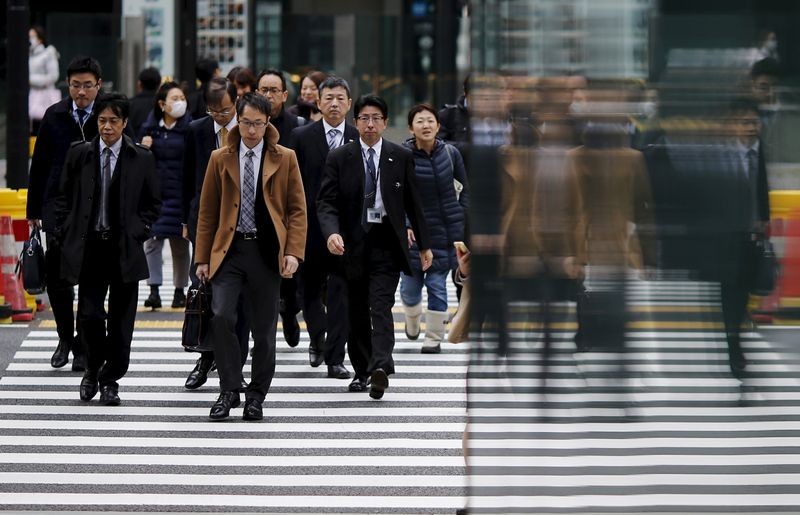Japan considering raising income tax threshold in fresh economic stimulus
2024.11.22 01:34
By Makiko Yamazaki
TOKYO (Reuters) – Japan is set to kick off discussions on raising the basic tax-free income allowance in effective permanent tax cuts worth up to $51 billion, a step that could also help ease constraints on part-time workers amid intensifying labour shortages.
The government’s plan, which will be mentioned in an economic stimulus package to be announced on Friday, comes as the ruling coalition yielded to a push by a key opposition party whose cooperation is crucial for the coalition to stay in power.
If the income tax threshold is lifted from the current 1.03 million yen ($6,674) per year to 1.78 million yen as demanded by the opposition Democratic Party for the People (DPP), tax revenue would drop by 7 trillion yen ($45.36 billion) to 8 trillion yen, according to a government estimate.
While the new threshold level has yet to be discussed, policymakers say a full increase to 1.78 million yen is unlikely.
DPP argues that 1.03 million yen has also served as constraining student part-time workers as their parents lose a tax deduction treatment if their dependent minors earn beyond the level.
Daiwa Research Institute estimates that about 610,000 students currently voluntarily limit their working hours to avoid hitting the threshold.
An increase in the deduction threshold to 1.8 million yen would boost labour supply by about 330 million hours, workers’ compensation by 456 billion yen and increase private consumption by 319 billion yen, according to Daiwa estimates.
But critics are sceptical about the impact on labour supply, pointing out that there are other barriers that prevent from such workers from working longer.
Raising the income tax threshold would also keep Japan an outlier among advanced nations that had mostly phased out pandemic-mode stimulus.
“This is effectively a dole-out policy disguised as a labour issue,” said Saisuke Sakai, senior economist at Mizuho (NYSE:) Research and Technologies.
“Japan’s goal of running a primary budget surplus in the next fiscal year would be absolutely impossible. With no one caring about the fiscal discipline, concerns about Japan’s debt could intensify among investors,” he added.
In the stimulus package to be approved later on Friday, the government will spend 13.9 trillion yen from its general account to fund measures aimed at mitigating the impact of rising prices on households.
The focus will now shift to how to fund the budget.
JPMorgan said in a report to clients that it expects about 10 trillion yen in additional new government bonds for the latest package.
However, the outlook for the budget for the next fiscal year from April is growing unclear as the outcome of the discussions on the tax revision would impact tax revenue for the year.
Fixing tattered public finances has emerged as a more imminent task for Japan as its central bank moves to exit years of ultra-easy monetary policy that had kept borrowing costs ultra low.

Japan’s public debt stands at more than twice the size of its economy, by far the biggest among industrialised economies.
($1 = 154.3300 yen)








